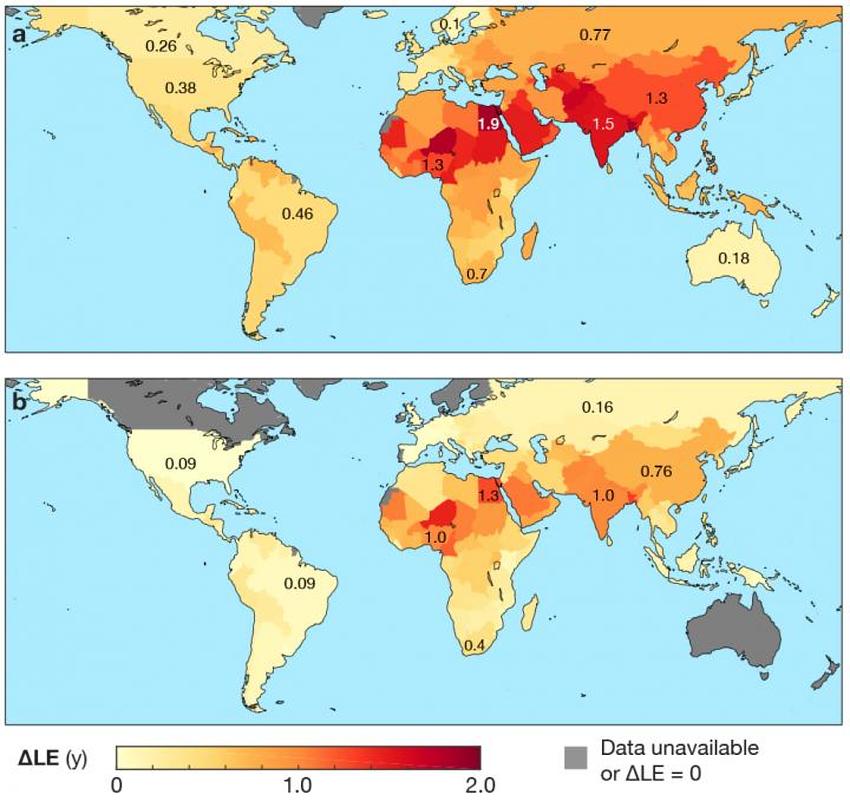Air pollution reduces the human life expectancy by more than a year, reports a new study conducted by a team of top environmental engineers and public health researchers. Improvement in air quality can lead to a considerable extension of lifespans all around the globe.
For the study, the research team focused on outdoor air pollution from particulate matter (PM) smaller than 2.5 microns. These are extremely fine particles that can enter deep into our lungs, and breathing in PM2.5 can put one at an increased risk of heart attacks, strokes, cancer and several respiratory diseases. The sources of PM2.5 pollution are usually power plants, cars, trucks, fires, agriculture and industrial emissions.
The research was led by Joshua Apte in the Cockrell School of Engineering at The University of Texas at Austin, and publsihed recently in the journal Environmental Science & Technology Letters.
The research was led by Joshua Apte in the Cockrell School of Engineering at The University of Texas at Austin, and publsihed recently in the journal Environmental Science & Technology Letters. The team used data from the Global Burden of Disease Study to determine PM2.5 air pollution exposure and its impact on 185 countries. They then examined the national impact of pollution on life expectancy for each individual country as well as on a global scale.
“The fact that fine particle air pollution is a major global killer is already well known,” said Apte, an assistant professor in the Cockrell School’s Department of Civil, Architectural and Environmental Engineering and in the Dell Medical School’s Department of Population Health. “And we all care about how long we live. Here, we were able to systematically identify how air pollution also substantially shortens lives around the world. What we found is that air pollution has a very large effect on survival – on average about a year globally.”
According to Apte, if we look at some of the other significant phenomena that negatively affects human survival rates, this number is quite big. “For example, it’s considerably larger than the benefit in survival we might see if we found cures for both lung and breast cancer combined,” he added. “In countries like India and China, the benefit for elderly people of improving air quality would be especially large. For much of Asia, if air pollution were removed as a risk for death, 60-year-olds would have a 15 percent to 20 percent higher chance of living to age 85 or older.”
“A body count saying 90,000 Americans or 1.1 million Indians die per year from air pollution is large but faceless,” he said. “Saying that, on average, a population lives a year less than they would have otherwise — that is something relatable.”

